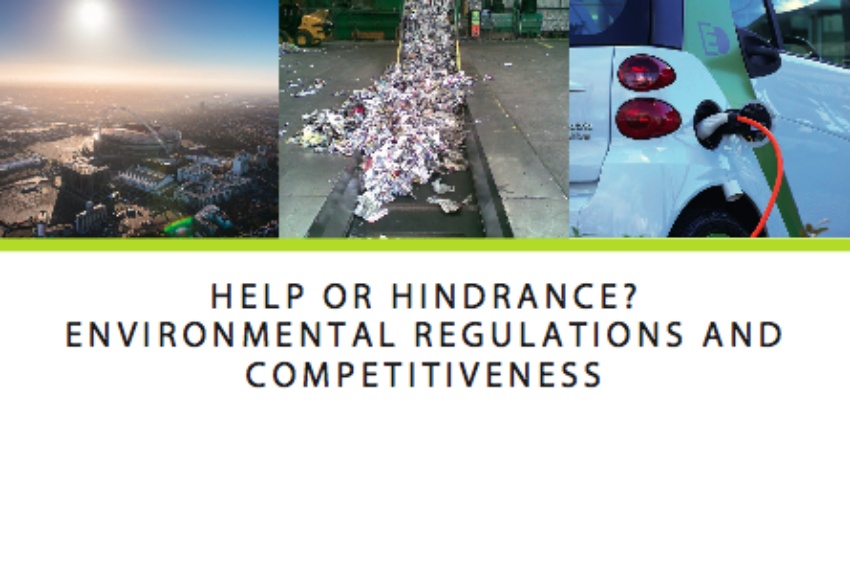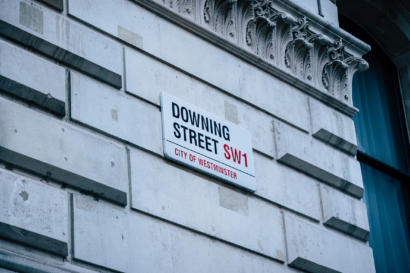REPORTS & BRIEFINGS | 07/12/2017
Help or hindrance? Environmental regulations and competitiveness

This report considers the experience of businesses involved with the implementation of specific policies in three sectors of the economy and as such cannot capture the experience of all economic sectors.
With the publication of the Clean Growth Strategy and the Industrial Strategy White Paper in 2017, the UK government has shown a growing cross-departmental focus on supporting the development of a more resource efficient and low carbon economy. The government’s vision behind the Industrial Strategy is one where the UK economy becomes more productive and where UK businesses develop leadership positions in new markets and increase investment in skills and innovation. The transition to a low carbon economy is central to delivering this vision. However, the role of environmental regulations and standards in delivering positive environmental and economic outcomes is rarely considered, being instead generally discussed in the context of “cutting red tape”.
As an organisation that focuses on addressing environmental challenges in a way that is environmentally and economically effective, the Aldersgate Group felt it was important to take a broader perspective on environmental regulations. At a time when the government is seeking to deliver major environmental goals under the Clean Growth Strategy and 25 Year Environment Plan and put together a new industrial strategy for the UK economy, we wanted to better understand how environmental regulations could best deliver the government’s environmental and industrial policy objectives.
We, therefore, asked BuroHappold to look into the impact that environmental regulations have had on business competitiveness, innovation and investment in skills and consider what lessons could be learnt to support the UK’s new Industrial Strategy. This report, which is based on business interviews on policies in the construction, waste and car industries, shows that well designed environmental regulations can have positive knock-on impacts on the economy in the form of job creation, increased investment in research, development and skills. Good regulations can reveal the value in social and environmental factors that the existing market had overlooked, allowing economic players to identify opportunities for investment and innovation. Good regulation creates valuable economic opportunities.
Unsurprisingly, there is such a thing as good and bad regulation. To be environmentally and economically effective, regulations must be pitched at the right geographic scale, be coherent with other existing policies, set a clear direction that increases in stringency over time and is implemented in such a way that works with business timescales. Critically, environmental regulations cannot be effective in a vacuum. They need to be accompanied by other policies such as measures on skills and innovation to deliver broader industrial benefits.
This report considers the experience of businesses involved with the implementation of specific policies in three sectors of the economy and as such cannot capture the experience of all economic sectors. However, it does provide some valuable lessons for the economy as a whole and shows that well-designed environmental regulations and standards have a role in delivering the government’s industrial and environmental policy objectives.


